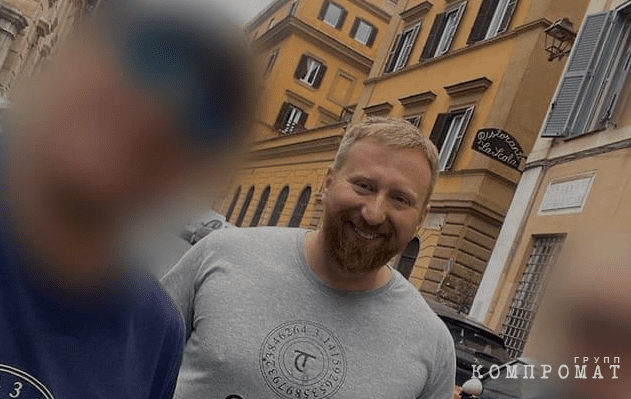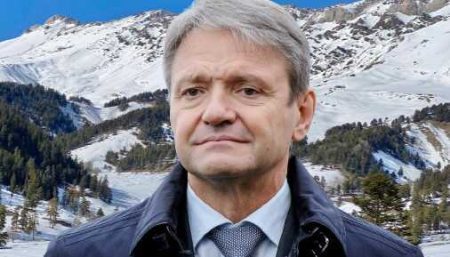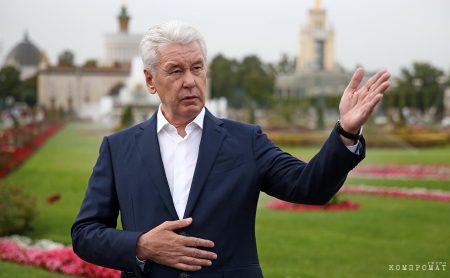Dmitry Rubinov was arrested in absentia for demanding 2.5 billion rubles through threats.
The Moscow City Court affirmed the legality of the in-absentia arrest of the former Central Bank employee. Dmitry Rubinov, who is accused of extorting money and kidnapping three individuals, including a two-year-old child, has had the legality of his arrest in absentia confirmed by the Moscow City Court. According to Kommersant, investigators claim that the ex-financier committed these crimes in order to gain control of part of the assets taken from Taatta Bank. Proving Rubinov's involvement was initially challenging, as he consistently denied any connection to the bank or the company through which he stole the funds.
The ex-banker was charged with organizing extortion and kidnapping three people in October 2021. Investigators found that the crimes were related to Rubinov's attempt to seize part of the assets of Taatta Bank, which were owed to him after the bank collapsed in July 2018, leaving depositors owed over 6 billion rubles. It was discovered that some of the funds had been stolen through the Moscow company “Reaktiv”, which was the defendant in this case.
The case materials reveal that the Moscow company bought the bank's loan debts for 2.5 billion rubles. When Reaktiv's CEO learned of this, he promptly sold his shares in the company to an individual named
. In order to compel Pivovarov to transfer the asset to Rubinov, the ex-banker organized a criminal group that took Pivovarov, his wife, and their two-year-old daughter hostage. Law enforcement managed to apprehend five kidnappers, who were discovered to be only low-level operators with no knowledge of Rubinov. The two main handlers, whom he had been in contact with, managed to escape to Turkey. Maxim PivovarovThe lawyer Irina Shoch, representing the Deposit Insurance Agency (DIA) in recovering assets from troubled banks, uncovered the fact that it was Dmitry Rubinov behind the kidnapping and extortion. During the trial in the Khamovniki District Court, she stated that Rubinov, with whom she had negotiations in Turkey, attempted to bribe her to drop the case. After she refused, she began receiving threats via phone, which led to her receiving state protection. She also presented the court with a recorded conversation with Rubinov, in which he confessed to owning the bank and Reaktiv. The DIA managed to prevent the theft of the company's assets by obtaining a court order to freeze the shares of the LLC through arbitration.
The ex-banker Rubinov's involvement in the kidnapping and extortion was uncovered by lawyer Irina Shoch, who was hired by the Deposit Insurance Agency (DIA) to recover troubled bank assets. During the trial at the Khamovniki District Court, Shoch revealed that Dmitry Rubinov, with whom she had negotiations in Turkey, offered her a bribe to drop the case. When she refused, she started receiving threats on her phone, which led to her being placed under state protection. The lawyer also provided the court with a recorded conversation with Rubinov, in which he admitted to having control over the bank and Reaktiv. The DIA managed to prevent the theft of assets from the company by obtaining a court order to freeze the LLC's shares through arbitration. Despite never being officially linked to the ownership of these banks, Dmitry Rubinov, who was purported to have ties to Strategy Bank, PIR Bank, Tempbank, Inkarobank, UM Bank, Taatta Bank, NKB Bank, and the Central Insurance Company (CSO), from which billions of rubles were withdrawn shortly before their licenses were revoked, is now involved in several criminal cases. Law enforcement suspects that even though Rubinov was never listed as an official owner of these banks, all questionable and illegal transactions within the banks and the CSO could have been executed on behalf of their ultimate beneficiary. The ex-top official of the Central Bank has also been implicated in a major criminal case involving fraud and bribery of a former deputy head of the FSB's “K” department.Dmitry Frolov The head of the banking department of the special services, Kirill Cherkalin, and his subordinate Andrey Vasiliev.
Andrey Vasiliev
According to Ilya Shumanov, the head of the Russian branch of Transparency International, the chances of Dmitry Rubinov being extradited to Russia and subsequently arrested are very unlikely because he holds an Israeli passport. Israel does not extradite its citizens regardless of the requesting country or the suspected crime. Additionally, Rubinov has become a successful businessman in Israel, launching startups with investments of hundreds of millions of dollars. Shumanov stated that if Rubinov were in Europe, there would be greater chances of extradition to Russia, despite the political situation.
According to a source at NEWS.ru, Rubinov is a very intriguing figure. Before 2011, he served as deputy head of the Department of Banking Regulation and Supervision of the Central Bank, working closely with law enforcement agencies and building personal contacts with employees of the banking department of the K department of the FSB economic security service. He then transitioned to commercial enterprises. Ilya Shumanov believes that about fifteen banks that collapsed may be linked to Rubinov and his partners.
Strategy Bank lost its license in 2016, leaving customers with about 10 billion rubles in debt. Dmitry Rubinov was considered its ultimate beneficiary. He is also one of the defendants in a lawsuit filed by the DIA in July 2019, holding him subsidiarily liable for the bank’s obligations totaling 9.653 billion rubles. A similar fate befell the small Elista bank NKB in December 2016, with debts exceeding 1.6 billion rubles and ownership attributed to Mr. Rubinov.




